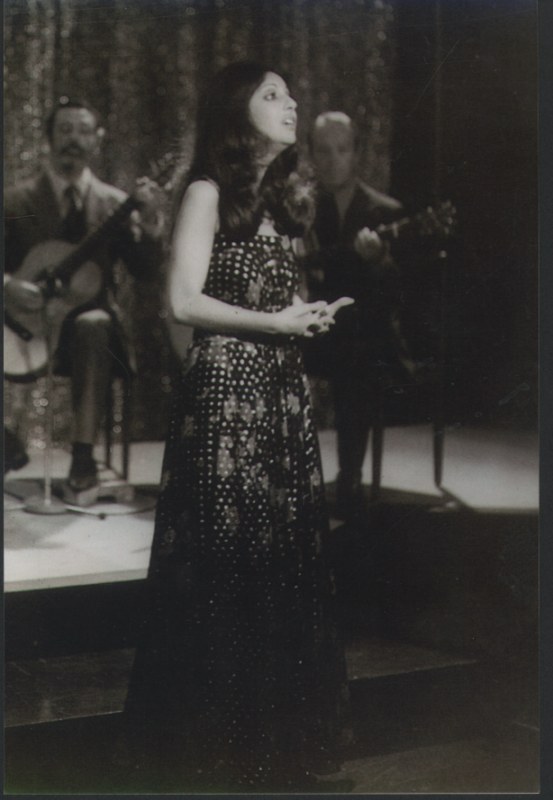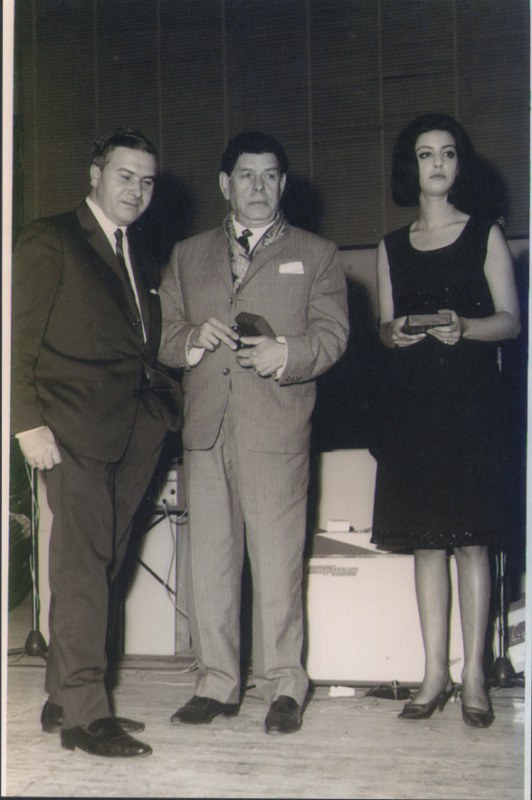Know more:
Teresa Tarouca
(N. 4 January, 1942 - M. 11 November, 2019)Born in Lisbon on January 4, 1942, Teresa de Jesus Pinto Coelho Telles da Silva is the great-granddaughter of the Counts of Tarouca and comes from a musical family, being cousin of Frei Hermano da Câmara, and primate of Maria Teresa de Noronha.
She started singing at the age of 11 in charity shows and was considered a child prodigy during the 1950s. Teresa debuted fado at the age of 13 at the Oeiras Fire Department. In 1958, she received the Bordalo Prize from the Casa da Imprensa.
In 1962, she signed her first recording contract with RCA.
Teresa Tarouca stands out for her work with prestigious authors: D. António de Bragança, João de Noronha, Alfredo Marceneiro, Pedro Homem de Mello, Maria Manuel Cid, among many others.
During her artistic career, Teresa Tarouca had the opportunity to perform on various stages around the world: Denmark, Belgium, Spain, United States of America, Brazil, Macau.
In 1973 she was invited by the Festival RTP da Canção, performing "Canção Verde", by Pedro Homem de Mello, and "Cai Rain do Céu" by Fernando Pessoa. With this second fado, probably Pessoa's poetry in Fado, which, until now, had never been possible.
In May 1994, she celebrated 33 years of her career, in a great show at Teatro Tivoli, and continues to sing regularly, having performed in 1996 at the Coliseu dos Recreios in Lisbon, in a show organized by the Câmara family.
She performed in 2003 in the “Velho Pátio de Santana”.
Her repertoire includes hits such as "Meu bergantim", "Não sou fadista de raça" and "Saudade, Silêncio e Sombra".
2013 was a year of recognition for Teresa Tarouca. In June, she received the Commendation of the Order of Infante D. Henrique and, in November, the "Career Award" from the Amália Rodrigues Foundation.
Teresa Tarouca died on November 11, 2019, but she left an indelible mark on Fado, highlighting not only her undeniable quality as a performer, but also the care in choosing the poets she sang.


-
Mulher Amor Teresa Tarouca (Lima Brumnon / António Chainho)
